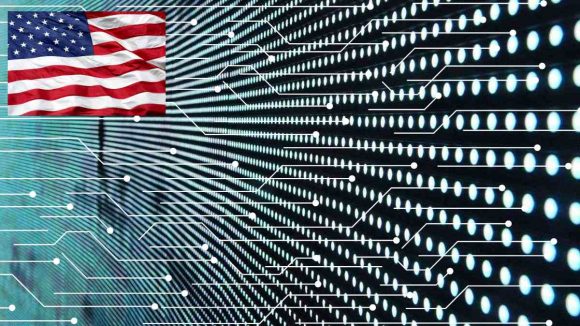US President Joe Biden has released an Executive Order to “reduce the risk that artificial intelligence (AI) poses” to workers, consumers, and national security. Developers will have to share the results of safety tests with the US government before they are released to the public.
Many industry experts say this is damning, while others are a bit more optimistic.
‘Terrible for US innovation’
Jeff Amico is the head of operations at Gensyn, a machine-learning computing protocol. He says Biden’s AI executive order is “terrible for US innovation.”
Amico explains: “If you are developing a large language model (LLM), you must report to the government regarding any ongoing or planned activities related to training, developing, or producing [your] model.”
According to the new Executive Order: “Companies developing or demonstrating an intent to develop potential dual-use foundation models to provide the Federal Government, on an ongoing basis, with information, reports, or records regarding the following: Any ongoing or planned activities related to training, developing, or producing dual-use foundation models, including the physical and cybersecurity protections taken to assure the integrity of that training process against sophisticated threats.”
Amico says the Order also places significant restrictions on large model developers having to report “the ownership and possession of the model weights of [your model], and the physical and cybersecurity measures taken to protect those model weights.”
If you acquire a large amount of computing, you must disclose “the existence and location of these clusters and the amount of total computing power available in each cluster.”
Amico says the government is treating computing (an inherently neutral technology) as a dangerous resource that must be regulated.
Open source AI – more experts agree
Sriram Krishnan, who previously led product teams at Microsoft, Twitter, and Facebook, has noted a distinct shift in the computing space over the last few weeks. “[There is an] active threat to open source AI immediately here. We now have a lot of credible voices jumping into the fray, waking up to what’s going on.”

He says it’s no longer just “people on the cutting edge of LLMs (large language models) believe this (AI) should be regulated. An incorrect perception that existed a little while ago.”
Dr. Andrew Ng is a globally recognized leader in AI. He says the right place to regulate AI is at the application layer. “While the White House order isn’t currently stifling startups and open source, it seems to be a step in that direction. The devil will be in the details as its implementation gets fleshed out. No doubt, with assistance from lobbyists, I see a lot of risk of missteps. I welcome good regulation to promote responsible AI and hope the White House can get there.”
Ng also believes “overhyped fears” about AI leading to replacing human jobs are causing actual harm. “I’m seeing young students discouraged from entering AI because they don’t want to contribute to human extinction. The hype about harm is also being used to promote bad regulation worldwide, such as requiring licensing of large models, which will crush open-source and stifle innovation.”
The history behind Biden’s attempts
Louis Anslow writes in a blog called Pessimists Archive that in 1991, Joe Biden introduced two bills containing anti-encryption language to prevent private emails: the Comprehensive Counterterrorism Act & the Violent Crime Control Act.
Anslow says with this Biden effectively declared war on math. But why would he do this?
“Encryption, once mainly used by the government, became increasingly appealing to consumers with the rise of personal computers and the internet. The prospect of democratized access to encryption worried governments and law enforcement agencies, like the FBI, an agency the Electronic Frontier Foundation claimed had persuaded Biden to attack encryption,” Anslow notes.
While Biden’s bills didn’t become law, Anslow says: “His attempt to prohibit email encryption gave programmer Phil Zimmerman the motivation to finish and release his open-source encryption project ‘Pretty Good Privacy’ (PGP). PGP would spread rapidly throughout the early internet – including across borders – making it much harder to prohibit.
The controversy continued into Bill Clinton’s administration when it started pushing the NSA’s so-called ‘clipper chip.’ It’s a computer chip allowing the government to “break any and all encryption. The ultimate goal was to make the chip mandatory. While Biden didn’t comment on the Clipper Chipper at the time, he didn’t speak against it as some other Democrats did,” writes Anslow.
In 1994, computer scientist Matt Blaze did what the government’s worst fear was. He broke ‘clipper chip’ encryption.
“In the following years, encryption export controls remained, stunting the growth of US software companies in foreign markets. Technology industry figures like Microsoft founder Bill Gates and Google’s Eric Schmidt lobbied the government to relax rules, which eventually happened in 1999,” according to Pessimists Archive.
About the author
Mia is a multi-award-winning journalist. She has more than 14 years of experience in mainstream media. She's covered many historic moments that happened in Africa and internationally. She has a strong focus on human interest stories, to bring her readers and viewers closer to the topics at hand.











